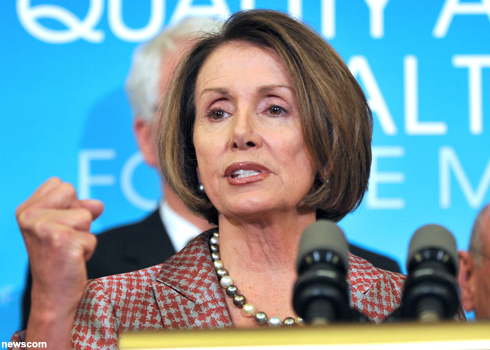New CBO numbers may have sealed the deal. Speaker Nancy Pelosi is preparing to move ahead with a “robust” public option–one that reimburses hospitals and providers at Medicare rates, plus five percent–in the House’s health care bill. She is briefing her caucus about the plan’s savings tonight, and, pending the approval of a sufficient majority of members, will adopt the measure as part of the complete reform package.
The analysis finds the reconstituted House proposal to be deficit neutral, and require less than $900 billion (reportedly around $870 billion) in new spending, over ten years.
The bill remains nominally more expensive than the Senate Finance Committee proposal, but would cover 96 percent of all Americans, providing greater bang for each federal dollar spent. And, aides note, the bill that comes to the floor of the Senate will be a hybrid of the Finance and more expensive HELP Committee bills, so the price is expected to rise.
The move is sure to make progressives ecstatic, and puts Senate leaders, who have been unable to reach any decisions about their preferences for a public option in their own bill, in an uncomfortable position.
In recent days, Pelosi has insisted that she intends to send House negotiators to a health care conference committee with the maximum possible leverage for the public option. And House health care principals have been working doggedly to keep the price of reform down with the help of the public option–so in a sense, the news of this final push comes as little surprise: Pelosi is, as expected, using the fiscal responsibility of the robust public option to win over enough skeptics in her caucus to pass it. And she is, reportedly, very close to doing that.
By tying reimbursement rates to Medicare, the government would be able to spend less money per individual on subsidies in the health insurance exchanges. One of the major critiques of the Senate Finance bill is that the spending totals are kept low by denying subsidies to middle income Americans, and without providing a systemic corrective to insurance industry waste and abuse. In the House bill, greater subsidies, and the public option address that issue.
Edited for clarity










